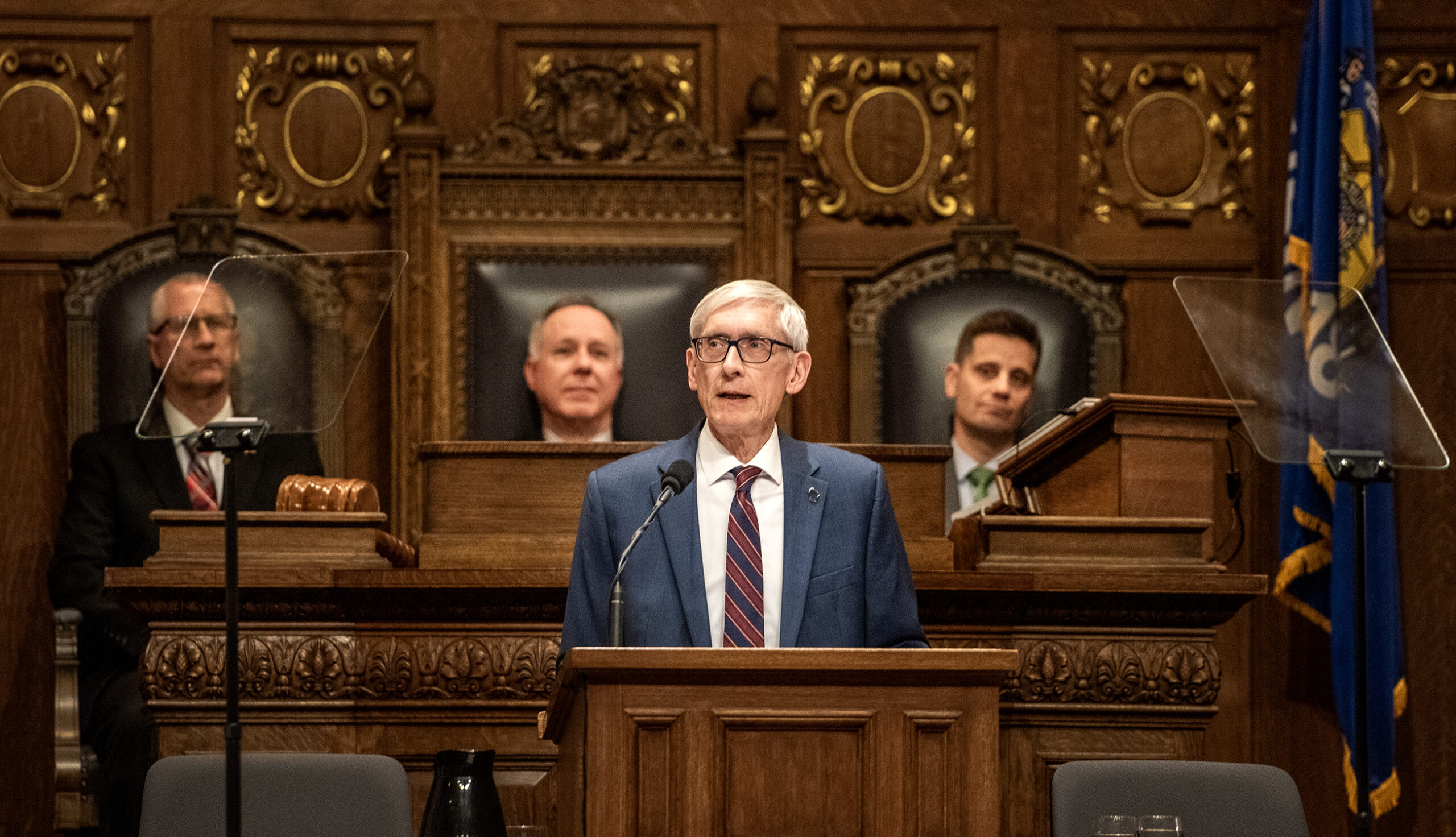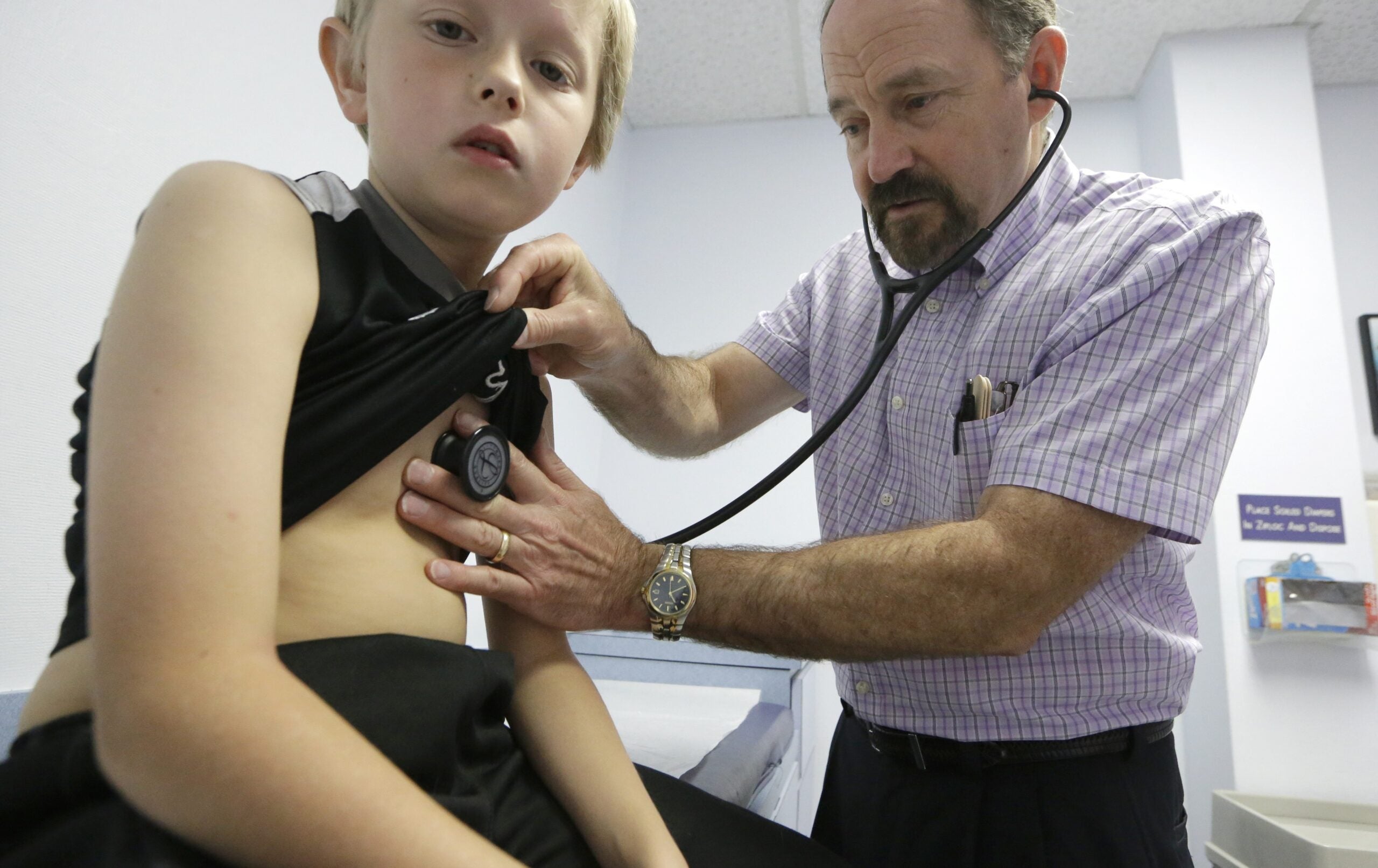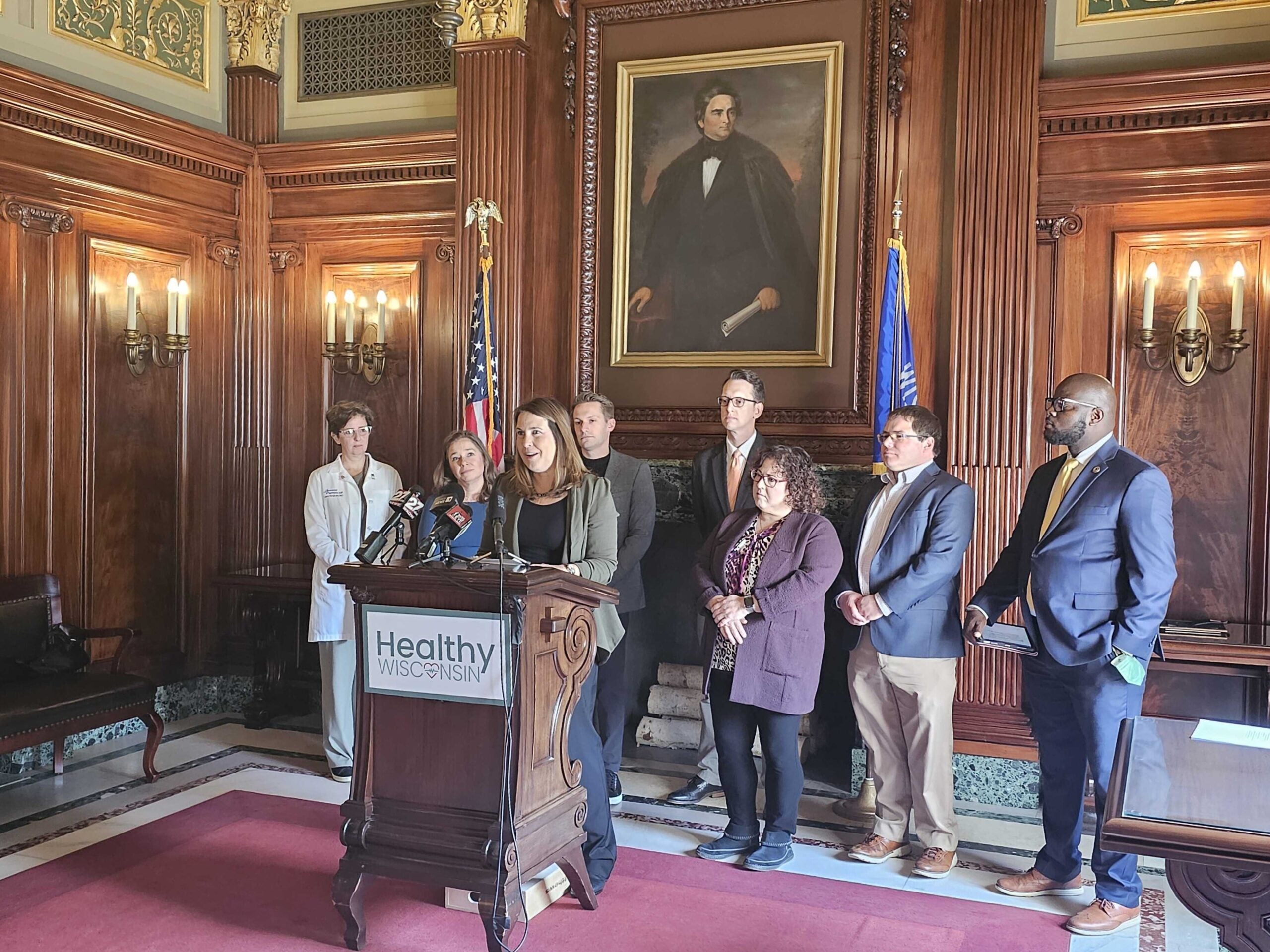Governor Scott Walker won’t seek federal funds to expand BadgerCare in Wisconsin, and will, in the process, reshape the program in ways not seen for 14 years.
The decision the governor announced Wednesday went way beyond a simple yes or no on federal funding. Walker said that going forward in his budget, BadgerCare would only be available to adults with incomes no greater than the federal poverty level. Wisconsin currently offers BadgerCare to people earning up to twice the federal poverty level, meaning the change would cut in half the amount someone can earn in Wisconsin and still qualify for BadgerCare. (An individual could earn no more than $11,490 a year and qualify; a family of four could earn no more than $23,550 a year.)
Walker told a gathering of the state’s largest business group that it would reduce peoples’ dependence on the government. “Some will portray this as not caring about people: I think it’s just the opposite. I care too much about the people of this state not to empower them to control their own destiny.”
Stay informed on the latest news
Sign up for WPR’s email newsletter.
Those would don’t qualify for BadgerCare would have to get insurance either from their employer or from a federal health insurance exchange. Walker conceded it would cover fewer people than an outright expansion of Medicaid, but projected it would still reduce the number of uninsured residents by 224,000. “You know, for those who were supportive of the Affordable Care Act and the exchanges, I don’t see why they’d be complaining, because they told us all along it was a good thing and a good place to be at.”
But Jon Peacock of the Wisconsin Council on Children and Families said the governor was making health coverage less affordable for tens of thousands of people. “The governor’s proposal would be a significant step backwards in access to care for low-income parents who are struggling to feed and house their families.”
By lifting an enrollment cap, Walker’s administration said the change would open up BadgerCare to 82,000 adults without kids. But it would push 87,000 other adults, mostly parents, off of BadgerCare, forcing them to get their coverage somewhere else.
Wisconsin Public Radio, © Copyright 2024, Board of Regents of the University of Wisconsin System and Wisconsin Educational Communications Board.






